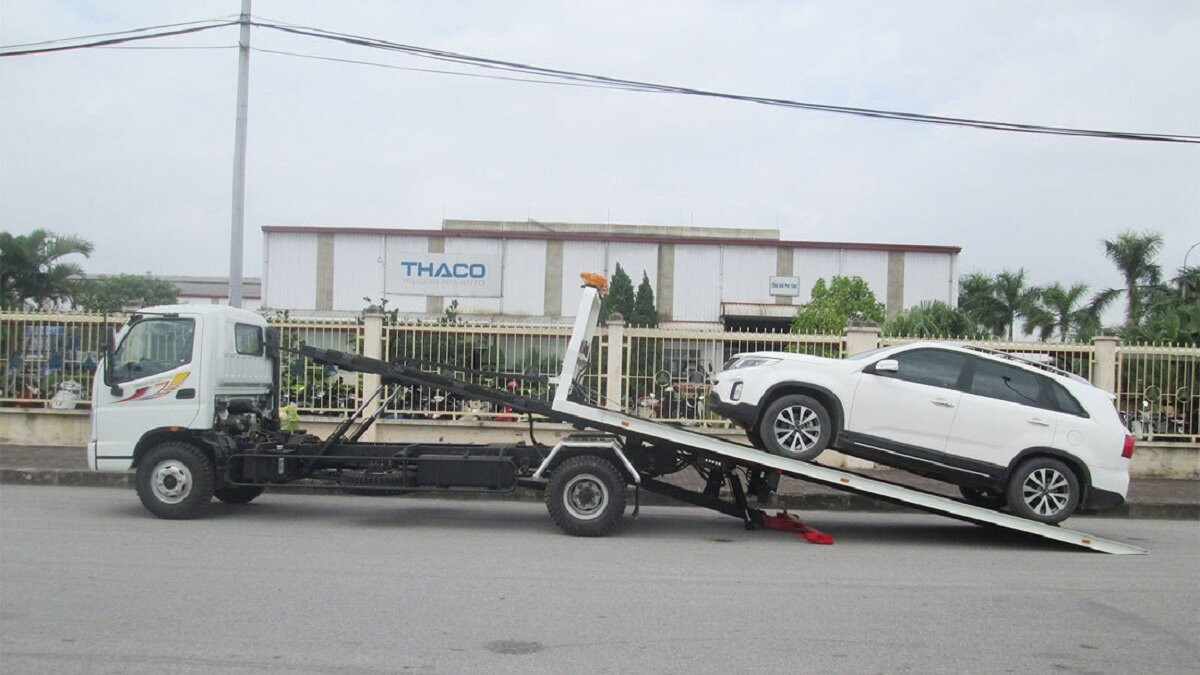When having to tow a car due to an accident, what should you keep in mind?
While driving on the road, your car may have an accident at any time and need a traffic rescue vehicle. You should pay attention to some issues when encountering this situation.
In case of vehicle breakdown or malfunction while driving, the vehicle owner needs to clearly understand the technical specifications of his vehicle and inform the vehicle type and drivetrain type when calling the rescue center.
This is important because it will help the rescue center classify the vehicle and dispatch the right type of rescue vehicle. There are 3 main drive types: front-wheel drive, rear-wheel drive, and 2-wheel drive (AWD or 4WD).

Rescue methods with different types of drives
Front wheel drive vehicle rescue
Front-wheel drive vehicles can be used for both towing and hauling. However, most rescue centers will use the towing method, which has more convenient features. When using this method, the rescue vehicle will lift the front wheels up while the rear wheels stay on the ground and are towed behind.
Rear wheel drive vehicle rescue
When using a rear-wheel drive vehicle, two methods of carrying and towing can be used. Specifically, the rescue team will lift the rear wheels onto the vehicle while the front wheels are on the ground and towed behind.
Four-wheel drive vehicle rescue
If the vehicle is a four-wheel drive, a towing method should be used to avoid damaging the drive system. If towing is used, rollers should be used to keep the other two wheels from contacting the road surface when towing.
If using conventional pulling method, the rotating wheel will have a negative impact on the transmission and gearbox while the engine is not running. Along with that, it will increase friction and damage machine parts when the lubricating oil is not fully supplied.
In short, when the vehicle uses a wheel drive system on which side, lift the wheel on that side. If the vehicle is a 4-wheel drive system, you should use the type of carrying or lifting all 4 wheels.
